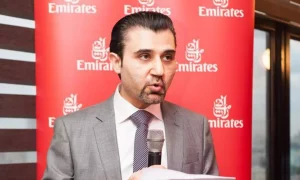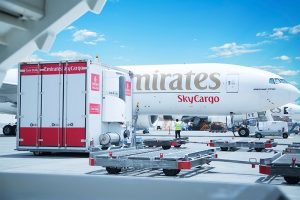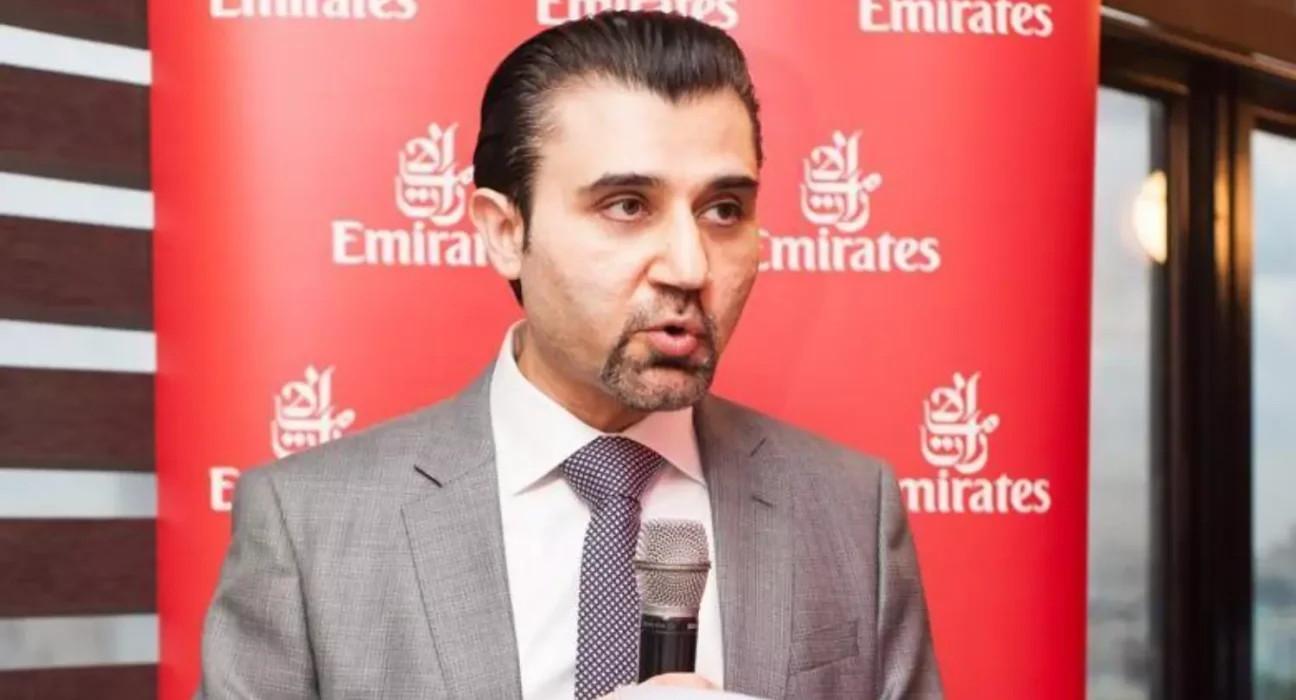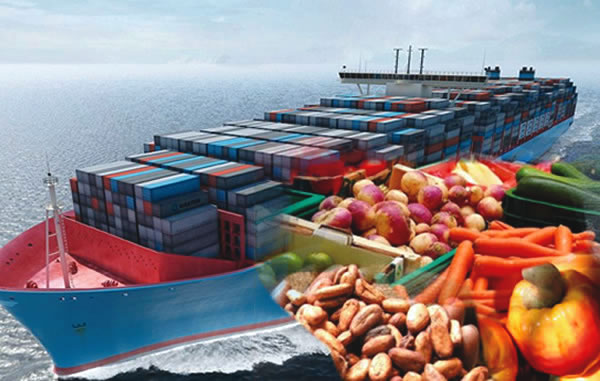
The Divisional Senior Vice President, Emirates SkyCargo, Badr Abbas, has said Africa represents the heartbeat of global trade, with immense potential and untapped opportunities, adding that Emirates is committed to enabling the continent’s businesses to reach global markets with efficiency and trust.
Abbas made this known in a recent interview at Air Cargo Africa, held in Nairobi, Kenyan capital, disclosing that on average, Emirates SkyCargo, the cargo division of Emirates Airlines, uplifts 3,820 tonnes of cargo every week from Africa, which shows the high demand from the market.
Abbas also said that shipping delays and tight freight capacity and strength in cross-border e-commerce, has pushed an increase in the demand for air freighting of cargo for quicker deliveries, as the International Air Transport Association (IATA) projects that from 2024, cargo volume will reach 80 million tons, an increase of 5.8 per cent.
Abbas said Emirates SkyCargo would expect demand to remain consistently high, with notable volume contributions from strong Chinese e-Commerce traffic, and a rise in shipments bound for Dubai.
“We continue to strengthen relationships with both longstanding and new customers, who value our innovative product portfolio, extensive global wide-body network and world-class capabilities. This momentum reaffirms our strategic vision and underscores our readiness to navigate emerging opportunities,” Abbas said.
According to him, the biggest positive trend for air freight industry is e-commerce which he described he described as one of the biggest trends reshaping the global economy.
“Without a doubt, e-commerce is one of the biggest trends reshaping the global economy, and we are at the forefront of this transformation. By investing in specialized infrastructure and expanding our fleet, we are building the capabilities to support growing hubs like the Middle East and South Asia. Our mission is to enable businesses to thrive in the digital age, ensuring that goods reach consumers with speed, reliability, and care,” abbas further said.
Despite challenges like political changes which influence policies in some countries, policy somersault, high tariffs (especially in Africa), supply chain diversification, Abbas said the secret of Emirates SkyCargo had been adaptating to disruptions, which is “in the DNA of the airline.
He noted that at Emirates SkyCargo, every challenge is an opportunity to innovate and lead.
“We have reinforced our resilience by diversifying our network, embracing technology, and strengthening customer partnerships. By staying agile and forward-thinking, we are ensuring that even in times of uncertainty which undoubtedly will present themselves in the future or geopolitical events, our customers can rely on us to keep the world’s supply chains moving,” Abbas remarked.
The Divisional Senior Vice President, Emirates SkyCargo, also spoke about the growth plan of the Cargo division of the airline, its 10-year strategic plan and the partnerships it assembled to actualise the targeted growth. Speaking about that mandate, he said: “Emirates SkyCargo is the benchmark for excellence in the global logistics industry—a trusted partner that seamlessly connects the world. My vision is to elevate this further, creating new and exciting opportunities for us to solve the transportation challenges of our customers. Our immediate priorities center on empowering innovation, strengthening our relationships with customers, and driving sustainable growth. By embracing cutting-edge technology, expanding our network, and building a culture of resilience, we aim to redefine the future of air cargo and contribute to the prosperity of the global economy.”
According to him, “As part of our 10-year strategy, we aim to add 20 new destinations to our global freighter network, and Copenhagen was the first. Next financial year, we are expecting delivery of multiple aircraft and aim to operate a fleet of 21 dedicated freighters by December 2026. This will unlock more capacity and the possibility of expanding our network, enabling us to better facilitate global trade. Our team of experts will continue to work closely with our customers to develop products and solutions that solve their industry’s transportation challenges. We have big plans, and we aren’t slowing down now.”
To buttress the report in rapid growth in cargo, Abbas said that Emirates SkyCargo has reinvigorated its specialist product portfolio, noting that all wide-body fleet and extensive global network have remained in demand throughout the year, adding that the growth in tonnage reflects the trust “our customers place in us and the strength of our vision.”
To sustain this momentum, Abbas said Emirates SkyCargo would continue to innovate, expand, and anticipate market needs, ensuring that the cargo division of the airline remains the trusted partner for businesses worldwide.
Reiterating Emirates SkyCargo market in Africa and its future role on the continent, Abbas said: “We harness the entire fleet of Emirates’ aircraft to serve our customers with a mix of dedicated freighters and via the belly-hold of passenger aircraft. This means that we also benefit from the 172 passenger flights per week, which complement our eight weekly scheduled freighters enabling the swift, efficient and reliable movement of goods from Africa to the world.
“Another example of how we enable our customers to more seamlessly connect with our product and services is via a trucking system. We move general cargo from Johannesburg to Cape Town and Durban via trucks, to ensure goods move on our customer’s timelines.

“By investing in infrastructure, fostering partnerships, and understanding the unique needs of African industries, we are not just adapting—we are championing Africa’s growth story and building bridges to connect its vibrant markets to the rest of the world.”
According to him, “Emirates SkyCargo over the years has excelled with its marketing strategy of creating unique cargo products to meet the changing demand of shippers. Abbas assured that this trend in addition to other marketing tools, will continue, noting that Emirates SkyCargo is in a more specialised, more advanced and more technical world than ever before.
“If we take healthcare as a case study, the future of medicine is in personalised treatments, engineered to be patient-specific. As these treatments become more specialised, they also become more priceless and harder to replace, meaning there can be no mistakes when transporting them from doctor to patient. We created a fit-for-purpose solutions, Emirates Vital, which I’m sure you’re all familiar with. This was designed in coordination with customers, to understand the challenges and customise a solution that would work every time.
“Our mission is to solve our customers’ transportation challenges. Whether they are moving life-saving healthcare cargo, high-value consumer tech goods or temperature sensitive fresh produce, our specialised product portfolio has a fit-for-purpose solutionto move goods quickly, efficiently and reliably. We will continue to consult with customers to create solutions that transport even the most delicate of cargo.”
Abbas also said that Emirates took innovation seriously because innovation underpins everything Emirates does. “But, more importantly, we want to implement innovative solutions that work, that make something possible or more efficient, as opposed to being ‘just a cool piece of tech’. It’s about whether we should, not just that we can,” he said.
He noted that digital innovation is the cornerstone of Emirates SkyCargo transformation, and aims to empower the airline’s teams and its customers with unparalleled control, speed, and convenience.
“But these tools are more than just operational enhancements—they symbolize our commitment to building a future where cargo logistics are seamless, intelligent, and adaptive. By harnessing data and digital platforms, we are not only enhancing customer experiences but reimagining what is possible in air cargo.
“Emerging technologies are the building blocks of the future, and we are fully committed to embracing them. AI and IoT allow us to optimize every aspect of our operations, from predictive analytics to real-time shipment tracking. Blockchain, on the other hand, offers unparalleled transparency and security. These innovations are not just tools—they are transformative forces that will define the future of logistics.
“We are exploring ways to bring more technology into our operations, without compromising on the human element that is the cornerstone of the Emirates SkyCargo world-class customer service,” Abbas added.






